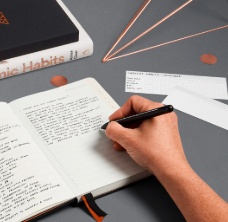Developing strong study habits is a great first step—but tracking them is how you turn good intentions into real progress. Whether you’re preparing for exams or simply trying to stay more focused, knowing how to monitor your study habits can make learning feel more rewarding and less stressful.
1. Choose the Habits You Want to Track
Start by identifying the specific habits that help your learning. These could include:
Reviewing notes for 15 minutes each day
Completing practice questions
Reading textbooks without distractions
Taking short study breaks every hour
Keep it simple! Pick 2–3 habits at first so it’s not overwhelming.
2. Use a Habit Tracker That Suits You
There are many ways to keep track of your progress:
Paper Planners: Draw a habit grid or use checkboxes each day.
Apps: Try study-friendly habit tracking apps like Habitica, TickTick, or Notion.
Wall Calendars: Mark off days when you complete your habits. This creates a satisfying visual streak.
3. Set Clear and Friendly Goals
Make your habits specific and achievable. Instead of “study more,” try “review biology flashcards for 10 minutes after dinner.” These clear goals help you stay focused and make it easier to track success.
4. Reflect Each Week
At the end of the week, ask yourself:
Which study habits worked well?
Were there any patterns in when I was most focused?
What could I adjust to stay more consistent?
Reflection helps you spot what’s effective and what might need tweaking.
5. Celebrate Your Wins—Big or Small
Even if you only completed a habit 3 out of 7 days, that’s still progress! Give yourself credit. A small reward or some encouraging words can help motivate you to keep going.
Final Thought
Tracking your study habits isn’t about being perfect—it’s about staying aware of your learning journey. With the right tools and a positive mindset, you can build strong routines that support your goals and reduce study stress.














